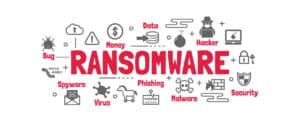Introduction
In today’s digital world, cybersecurity is not an IT issue; it is a business imperative. With respect to the burgeoning landscape of cyber threats becoming both more frequent and more sophisticated, leaders have to make cybersecurity a priority for the protection of data, reputation, and financial health of their organizations. Good cybersecurity begins at the top by asking the right questions and learning what risks need to be mitigated. Thus, the article looks at essential cybersecurity questions each leader should ask to ensure proper protection against cyber threats.
How Will Our Data Be Protected?
How well is your organization’s data protected?
- What sensitive data do we hold, and where is it stored?
- Which encryption algorithms are we using?
- How frequently do we update security protocols?
These questions are useful in terms of enabling leaders to understand the scope of their data assets and of the measures put in place to protect them. The vulnerability needs to be secured by encryption and regular updates.
Are We in Compliance with Applicable Regulations?
Cybersecurity regulations must be upheld at all costs to avoid litigations and maintain good standing in society.
- What regulations apply to our industry and operations?
- Are we GDPR, CCPA, HIPAA, or other statutes compliant?
- How do we monitor and maintain compliance?
Ongoing efforts and an understanding of the evolving landscape through regular audits and establishing dedicated compliance teams are in order.
What is Our Incident Response Plan?
It is thus important to have a strong incident response plan in place so that if the system is breached, damage can be minimized.
- Do we have a documented incident response plan?
- How often is this plan tested and maintained?
- Who are the key personnel involved in our incident response team?
A well-developed incident response plan ensures quick and efficient action to minimize the possible impact of cyber incidents.
How Do We Train Our Employees?
Human error is, therefore, one of the most significant vulnerabilities in cybersecurity.
- What training programs are in place to educate employees about cybersecurity?
- How frequent are these training sessions?
- Are there metrics to measure the effectiveness of our training programs?
Because of continuous training, employees will likely be well aware of up-to-date threats and best practices for preventing them, therefore significantly reducing the breach risks associated with human error.
What are Our Third-Party Risks?
Third parties may expose additional vulnerabilities.
- How do we vet our third-party vendors for cybersecurity risks?
- What access do these vendors have to our data and systems?
- Do we have contracts in place that mandate specific cybersecurity practices?
Effective third-party risk management calls for thorough vendor vetting, unambiguous contractual obligations, and ongoing monitoring of vendor practices.
How Do We Handle Data Breaches?
Preparation can lessen the aftereffects of data breach.
- What is the process for the detection and reporting of a data breach?
- How do we communicate with stakeholders during a breach?
- What kind of action/recovery steps are taken after a breach?
Having the ability to detect, communicate transparently, and recover effectively goes a long way in saving trust and stopping data breach fallout.
How Are We Assessing Our Cybersecurity Posture?
Continuous monitoring of implemented cybersecurity measures is vital to maintaining strong defenses.
- How often do we do security assessments and penetration testing?
- What metrics do we use to measure our cybersecurity effectiveness?
- Are we using threat intelligence to predict and protect against evolving threats?
Regular assessments and the use of more advanced tools, such as threat intelligence, help to identify vulnerabilities and improve security posture.
What Is the Investment Required in Cybersecurity?
Understanding the financial component of cybersecurity is essential for making the necessary resource allocations.
- How big is our current cybersecurity budget?
- Are we investing in the latest security technologies and practices?
- How does our spending compare to industry benchmarks?
Cybersecurity investment is more than simply spending; it is an assurance that money is being spent correctly to stay on the safe side against cyber threats.
Conclusion
Successful cybersecurity requires active engagement from the organizational leadership. Only by asking the right questions will leaders fully grasp their current cybersecurity state and areas that need change; most importantly, they will secure resiliency in their organizations against cyber threats. Only an organization that puts cybersecurity first can protect its valuable data and increase its reputation and trust among stakeholders. Informed leadership is the first line of defense in an era of constant cyber threats.
Cybersecurity is everyone’s responsibility, from the organization’s top to every other member. By asking themselves such imperative questions, leaders can rest assured that their organizations are ready for the future in the ever-changing landscape of cyber threats. Ongoing learning, periodical assessments, and proactive measures are needed to characterize robust cybersecurity defenses. Remain vigilant, stay informed, and prioritize cybersecurity at all costs for your organization’s future.




